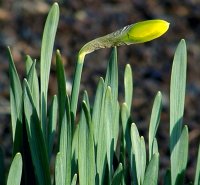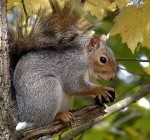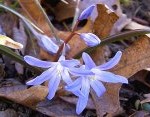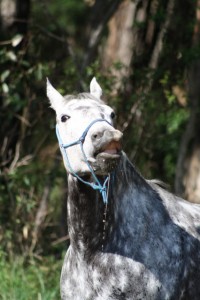Much to learn
One of the difficulties I often face when bringing a patient along a path of natural healing is the re-education of healing forces within the animal.
The other difficulty is in accurately assessing response to treatment and preparing owners for apparent setbacks resulting from a change of medical management.
If a conventional approach to disease management is strongly entrenched with years of antibiotic or pharmaceutical interventions, the healing system has learnt to operate this way; to be dependent. This is not necessarily a bad thing in cases of acute or contagious illness where the animal is overwhelmed. A short course of appropriate allopathic medicines will generally bring about a speedy cure. The real difficulties lie in systems that have learnt to depend upon drugs over longer periods of time and for disorders that are not acute attacks but rather deep long standing predispositions to disease. Conditions like epilepsy, recurrent skin disease, organ diseases, heart, liver, kidney, often arrive rattling with tablets.
In these cases, a number of factors need to be considered before an alternative treatment plan can be devised.
The age of the animal can influence healing capacity as is generally accepted. A young animal will usually have greater regenerative capacity than an elderly one.
If the animal’s vital force has depended upon conventional drugs for a long time then it has learnt to function in a particular fashion which may or may not be able to be altered.

The use of cortisone is a well-known and classic example of this phenomenon. Most of us realize that cortisone does not cure disease. It is, however, very good at reducing symptoms in many cases and bringing about relief. It can be a life saving drug. The concept of delayed healing brought about by its use, is however, even recognized in the strictest of conventional practices who acknowledge that it will delay healing of wounds, reduce effectiveness of vaccines and prevent other medicines and approaches from becoming an option. This is also well recognized in the field of chemotherapy, cancer management, for example, as cortisone usage can exclude other treatment options. With long-term usage it also predisposes to Cushing’s disease, diabetes and weakness of the immune system, muscles, ligaments and skin.
From an homeopathic perspective, it is also more difficult to re-educate the vital force once it has learnt to rely upon or respond to these allopathic medicines. It can also be difficult to rehabilitate a physical system weakened by cortisone.
Cortisone is an anti-inflammatory.
All ‘anti’s’ will have the same influence on the vital force’s capacity to learn how to cure. Antibiotics, Anti inflammatories, Anti depressants, Anti psychotics, Anti histamines, are all alike in their suppressive capacities. It follows that they are likely to suppress the vital force more than support it and in this way the education of the vital force begins and, in many cases, continues for a very long time. Occasional short courses of cortisone and any of the anti’s can afford the system a well earned rest but continued usage will only confuse and weaken the immune system.
Once homeopathic management is implemented it is important to prepare for an adjustment. For this reason and as a result of re educating long standing disease patterns it can seem that the disease becomes worse before becoming better.
The old pattern will cease and a new one will begin but in the meantime, symptoms may re-emerge so that they may be dealt with in a different way.
New symptoms may also emerge as an indicator to the homeopath for remedy selection. Symptoms in homeopathic practice are nothing more than clues for assisting the vital force to adjust to derangements and it is very important that they be expressed so that appropriate remedies can be selected. Continued suppression or avoidance of symptom expression can drive disease deeper in its attempt to express itself.
It is often best, therefore, to keep patients with long standing diseases such as heart disease, liver disease or long standing skin disease on their regular allopathic medicines concurrently until some further improvement in organ function is evident. Once the organs are better nourished and nurtured they may be able to learn to respond to natural remedies and drop their dependence on drugs. Often elderly animals will still require regular medications as their capacity to adapt can be hindered by age and habit.
Many patients will seem to get worse before they get better as a result of the switch in management. Discharges can become worse, itching can increase and other signs can emerge. Initially this apparent worsening of the condition can often be a discouraging sign for many animal owners and can be discouraging enough for the practitioner at times unless kept in perspective.

This can be a test of faith for all.
The homeopath and the animal’s vital force itself will not permit the true health picture to decline. At all times, the animal’s demeanour and strength must be maintained and this is the true indicator of healing. Healing occurs from within to without. I am particularly reminded of a patient with severe skin disease who, in my mind, was clearly responding to homeopathy but in the owners mind was not. I was looking at the animal’s enjoyment of life and attitude having risen from a depressed state to one of more calm and happy involvement in the household but because the hair had not grown back fully, sadly the owners could not see the positive change in their dog and abandoned treatment.
In some cases the animal is not responding to, or rejecting, the conventional medicines before a natural approach is sought. It is a relief from an homeopathic perspective when the animal’s vital force has already rejected the allopathic medications in this way. Whilst it can seem very disappointing that there has been minimal response to the drugs prescribed by regular practitioners it can also be an opening for natural therapies. It may indicate that the animal’s vital force is ready to respond to homeopathy without so much of the fallout described above.
The vital force will always do everything in its power to do the best thing for the animal. The course of natural healing is a difficult and challenging path but one that we can choose with confidence to assist the vital force, the guardian of life, to maintain health.

A good client of mine, feeling lucky to have had such an experience recently wrote; “Luck is when life leads you on a journey that takes you to a place that scares you and the you find the courage and special people who turn the whole experience into an incredible journey.”
Good luck in finding your own best way forward on your own healing journey.
………………………………………We all have much to learn.